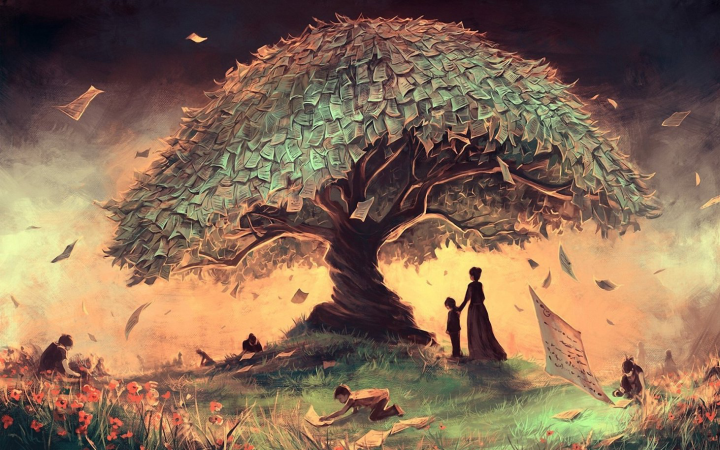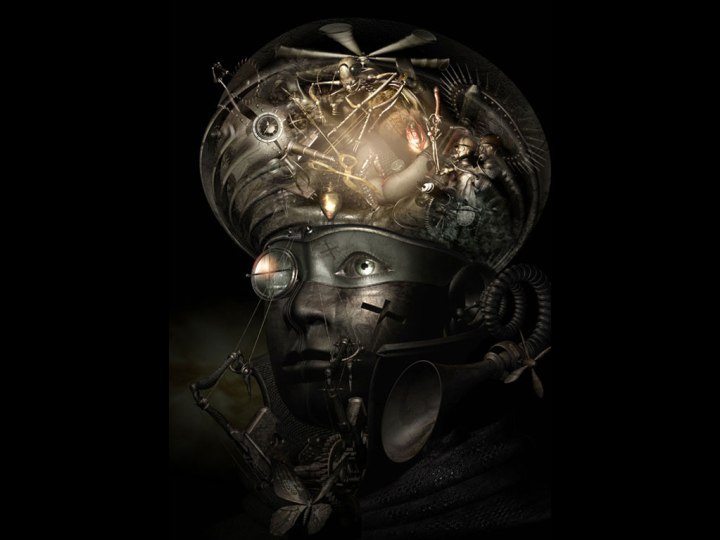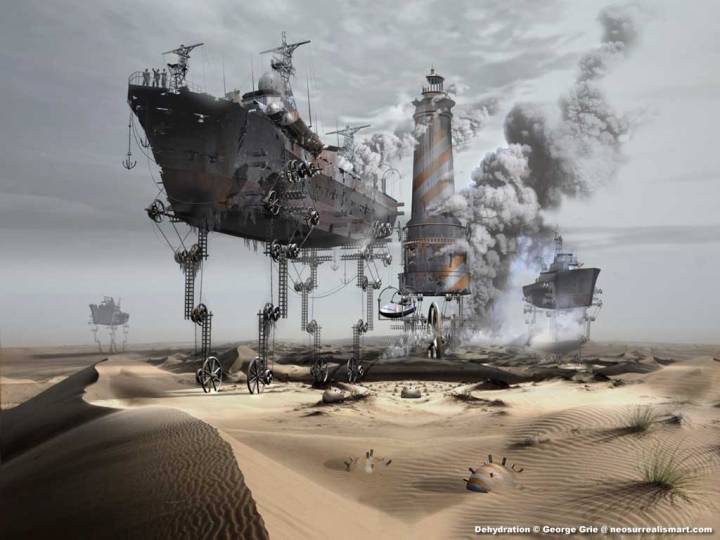
“In a gentle way, you can shake the world.”
Mohandas Ghandi
“Outspoken critical thinkers are…individuals who understand the value of thinking objectively, fairly and altruistically as they observe, analyze and conclude in their assessments. They then use the written and spoken word as the vehicle in which to share their insights. “
The most formidable force in the world has never been through the blast of the cannon, nor the effect of the bullet. It has not been found in the aftermath of a nuclear bomb, or the release of violent combat. No… the most formidable force is the power of the word. Through its effective use, hearts and minds can be moved to move mountains, change laws, proclaim the freedom of an entire people, bring empires to heel, and change the direction and ways of nations.
Truly, life should not be purposed to seek the wielding of social and political power. That is not being advocated here. The ability of a massive number of individuals to write and speak persuasively on a nation-wide scale helps dilute the power of the word as it is invested in an elitist few, and delivers a strengthening of democracy starting from the bottom up. What is implied is that a sharp increase in the number of American citizens who are not merely professionals in a given trade or industry, but also active participants in the shaping and auto-correcting of our democracy would raise our country, one from many, to a new level of intellectual operation nothing short of a non-violent revolution.
The perceived, yet false danger to an established social-political system in raising free-thinking, critical thinkers is that they tend to be non-tribal and in favor of individual advocacy. In the best of cases, critical thinkers create more critical thinkers. Bringing about un-indoctrination thinking releases hearts and minds from a binary-thinking mode of ‘us versus them,’ and creates a platform of ‘we the awakened intellectual people.’ Critical thinking sharpens non-tribal thinking and intellectual confidence, as it does foresight and intuition. The individual gains ground as an intellectual force over any type of collective, tribalist-thought social construct, even sidestepping the continuance of such a system. Moral, non-tribal, critical thinkers are consistent altruistic advocates of revitalizing social, political, and economic life in a community. They are listeners, leaders, and informational-content creators. They protect foundational truths, bring to light grievances, tear down falsities, and stand in the face of steep opposition.
“Moral, non-tribal, critical thinkers are consistent altruistic advocates of revitalizing social, political, and economic life in a community. They are listeners, leaders, and informational-content creators. They protect foundational truths, bring to light grievances, tear down falsities, and stand in the face of steep opposition.”

Consider the work of all the prophets in the Judeo-Christian holy scripture. Some were kings, while others led very difficult lives, many a times at odds with the prevailing cultural norms of the local and national communities they lived in. If you can believe it, God sent them to proclaim a return to His Way with his Word and even to stand fast in patience and long suffering the wrongful wrath and disdain of many. Throughout the history of recorded humanity, and especially in the last 5,000 years of recorded history (starting with Moses recording of the first five books of scripture), we have had the memorialized stories of men and women (Queen Esther, Jeremiah, Nehemiah, David, the Lord Jesus Christ, John Adams, Abraham Lincoln, Frederick Douglass, Mohandas Ghandi, the Reverend Doctor Martin Luther King, Jr., Karol Jozef Wojtyla, and Mother Teresa), who have stopped the directions of cultures, been sources of righteousness, created empathy in oceans of apathy; having done so mainly through the power of the spoken and written word. Surely, Moses led a standing army and Queen Esther’s story included the slaughter of thousands, King David was known for his leadership in armed battle, John Adams-the second President of the United States of America, was the foremost sustaining revolutionary energy in the Continental Congresses through his power and use of words as a public speaker. For all these, the ability to persuade others was due to their effective use of words and paraverbal (how you say what you say) dominance, if not divine will as well.
Outspoken critical thinkers are then individuals who understand the value of thinking objectively, fairly and altruistically as they observe, analyze and conclude in their assessments. They then use the written and spoken word as the vehicle in which to share their insights.
They can:
- bring about valuable discussion
- re-prioritize such discussion in accordance to fundamental human values
- squelch attempts to remove or obfuscate the cultural value of the critical thinker in a society
It is then that this kind of individual is viewed as a non-conformist, and that can be deemed as an unsettling and negatively disruptive counterweight to any prevailing hierarchical social order.
Taking on the educational development of outspoken critical thinkers in the American educational public school system may never catch on given that it could quickly create what would be ‘misconstrued’ as an abundance of unwanted expression and political division from current social-political norms. Youth and young adults would be taught a default method of critical thinking based on a lack of understanding of the instructional parameters.
“All of a sudden, parents and entire communities could see their children go from being on the political social-left to being on the political individual-right, and that would be a political failure for binary, tribalist politics.”
For example, the political slant of a community would impress itself upon the student-learning as the ‘winning-social-economic-political ideology,’ in contrast to the community, its scholastic teachers and school administrators allowing the free-thinking practice of understanding and questioning the politics of communities and how these shape thinking. All of a sudden, parents and entire communities could see their children go from being on the political social-left to being on the political individual-right, and that would be a political failure for binary, tribalist politics. Such a reality would not be allowed to flourish in its entirety and would be co-opted at a given point to grow critical thinking skills in younger generations, yet slant these intellectual powerhouses towards the favoring of local social-political-economic views.
It is then that the American public school system’s attempt to literally introduce critical thinking as a stand alone instructional curriculum on par with science, technology, engineering, and math would be railroaded at key points in order to secure the livelihood of the social-political structure. Hence, public school systems would not seek to understand or value the shaping of generations of freethinking leaders who can be team players, but generations of ideological followers who can be team players. Exceptions or anomalies to this rule do happen, but by and large, instructional methods are aligned in accordance to social-political ideological thinking of that prevails, in most of our academic institutions, and that is a leftist leaning perspective. Unfortunately, the system in public schools indirectly supports the continuance of an ‘us versus them’ binary thinking, and indirectly supports the allowance of a continual creation of an elitist professional leadership over and over again.
How so?
Generally speaking, the wealthiest families are able to send their children to the best private schools, wherein, the future leaders of industry and economy are created. Public schools tend towards creating professionals who conform and follow the social-political system in place. In contrast, the most elite private schools teach towards ingraining a sense of confidence, decisiveness, and intellectual agility. Same people, different learning environments. A lopsided development occurs where a vast majority of the ‘educated’ population is routinized into being receptive and passive citizen professionals, whereas an elite few are taught to be industrious social, economic and political leaders. It is a binary hierarchy based on two basic educational empowerment approaches.
“A lopsided development occurs where a vast majority of the ‘educated’ population is routinized into being receptive and passive citizen professionals, whereas an elite few are taught to be industrious social, economic and political leaders.”
Unless, public school administrators, teachers, and parents call for and institute a change in this perspective, their student populations are largely taught (through default) to:
- work within the social-political-economic system
- not cultivated in thinking to question the scaffolding of the social-political-economic order
- not taught to stand alone in a non-conformist intellectual position advocating for an improvement of the prevailing system
Nothing Changes if Nothing Changes
The solution to positively disrupt such an order is both responsible and mutually beneficial to all people across our cultural strata, yet negatively detrimental to the existing order of operation. It is not to be feared though. Teaching people to be critical thinking advocators alongside science, technology, engineering, and math makes for a revitalized democracy of citizens who:
- are increasingly non-tribal
- observe, question, and use the written word to add informational content to the local and national social-economic-political conversation.
- gravitate towards the defense of human rights through the defense of the rights of the individual citizen
- are confident in joining, adding, or bringing correction to the local-national conversation
- increasingly decisive and intellectually agile in understanding what the true issues are, what they should be
- tend to seek out how society can function better, how the physical environment can be cared for, and what kind of solutions can be brought forth towards the issues

Such a shift brings about a revolutionary change in society through the favoring of intellectual empowerment, rather than reactionary reflexes, like physical violence, and falling back into calls for political tribalism based on ideology. Through the favoring of mindfully teaching the use of our thinking side, instead of our reacting side, we send a message that ‘people power’ is not found in the indoctrination of people at the individual level, that they then become tribalist followers, but in the un-indoctrination through the inculcating of critical thinking that leads to social, economic, and political advocacy.
The singular obstacle to the realization of this shift is a complacency to not rock the boat. The forms of information production and distribution are solely owned by an elite minority of people, as is the power of influence from entities and organizations who fund or are protected through the remaining of the social-political status quo. These may be already benefiting from the prevailing construct, and would not be akin to change what is already working for them. Hence, given their direct and indirect control over what information is distributed, for how long focus is kept on each topic, and how informational content is managed to affect our culture, the aims described herein can and are suppressed and dismissed.
However, what joy, what adventure, and what a refreshening of American democracy it would be if non-tribal, altruistic, outspoken critical thinking would be valued as importantly as science, technology, engineering, mathematics, the arts, and vocational professions. Suddenly, the focus of the management of American society moves from the playing field run by the elite power structure, and favors the soft rise of individual and unique critical thinkers. Be not alarmed, it will be so that these will naturally be anchored in the protection of human rights, in the overt championing of more critical thinkers in democracy, and in the staunch defense of America’s founding doctrines.
Comments